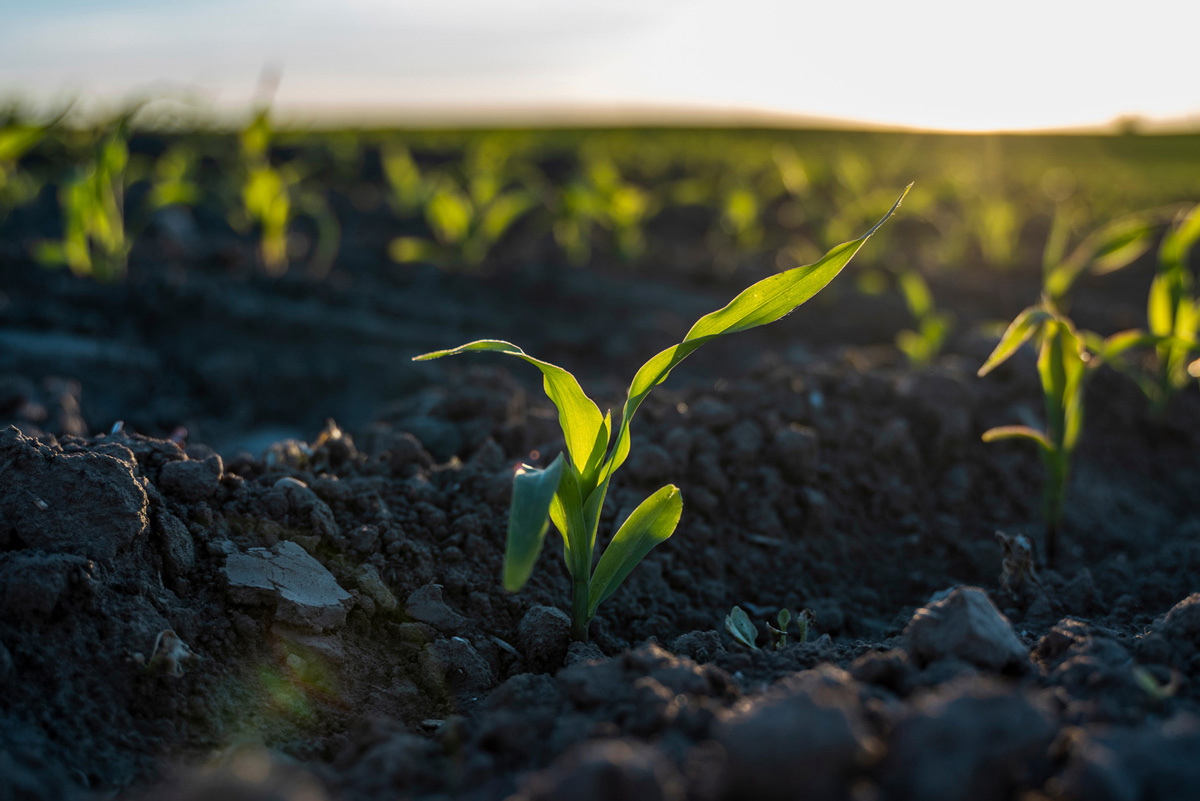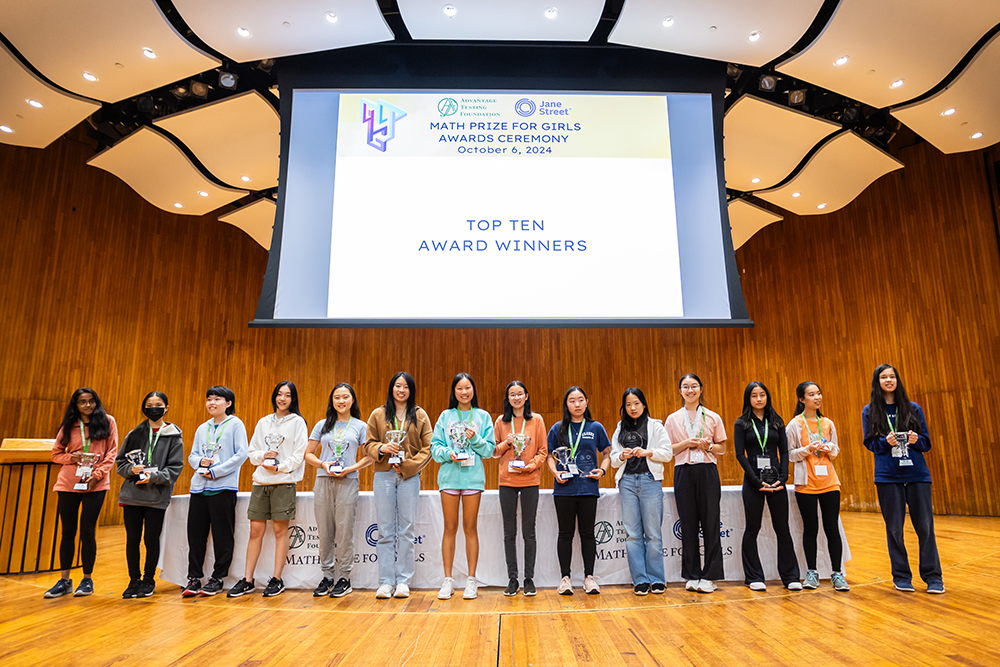For their last meeting of the fall 2023 semester, the students in MIT’s course 21W.756 (Nature Poetry) piled into a bus and headed to a local performance space for a reading: their own.
Sure, students in the course, taught by Professor Joshua Bennett, spend much of the semester reading and discussing poems. But they create and perform, too, often using tools from their other studies at MIT. One student in 21W.756 built a custom field microphone to incorporate recorded sounds into his work; another designed collages to complement her poems.
“The students are phenomenal,” says Bennett, a professor of literature and Distinguished Chair of the Humanities at MIT. “I try to think about how everything else they’re studying at MIT might meet up with the study of literature in a productive way. We’ve got great students who do super-interesting things.”
He adds: “They are willing to take the leap between other classes and our class very seriously. They see it as an opportunity — and they’ve explicitly told me this — to talk about being human. They’ve cherished that, and it’s been a transformative experience to have witnessed that.”
Bennett, an award-winning professor with a broad portfolio of work, knows about leaping between disciplines. He has published books of literary criticism, cultural history, and three collections of poems. Bennett has also gained renown as a spoken-word poetry performer — he has another major tour slated for this summer — and helped found the poetry collaborative Strivers Row. His readings have gained what must be millions of views on YouTube, including “Tamara’s Opus,” a dramatic work written for his deaf sister.
In short, Bennett also does his own super-interesting things, while encouraging students to join him in the pursuit of knowledge.
“Why do we create literature in the first place?” Bennett asks. “Why do we go to college? Why do we listen to people tell stories? Why do 300 or 3,000 people at a poetry reading listen to me or others talk? I imagine some of it is, there are things we love about being alive. And one of them is the feeling you can learn something new. You can be astonished. There is a space for you to become more complete through knowledge.”
Reading (and listening to) everything
Bennett grew up in Yonkers, New York, in a family that included preachers and musicians, and helped inculcate a love of learning in him.
“I’m thankful I had parents who just weren’t narrow-minded,” Bennett says. “They taught me to read everything, to listen to everything. At school I was reading Fitzgerald, and other works that were canonical, and wherever I saw beauty I really gravitated to it.” At the same time, he notes, “I was exposed to the genius of gospel music, jazz, and Motown,” while learning about Black scientists and much more.
He credits a 10th grade English teacher, Kaliq Simms, for helping him realize his potential as a student and writer.
“We read Hamlet, the Merchant of Venice, the Canterbury Tales, and she took us through literature in a way that made it land,” Bennett says. “She taught those works alongside Toni Morrison and James Baldwin. There was just something about the way she spoke to us. Ms. Simms said I was a ‘witty elocutionist.’ She just saw something in me other people didn’t see, or couldn’t. She had a serious role in changing my trajectory.”
Thus bolstered, Bennett earned his undergraduate degree as a double major in Africana studies and English from the University of Pennsylvania, where he became involved in the competitive poetry-slam scene. Bennett did so well as a performer that in 2009, before he had graduated, he was invited to perform “Tamara’s Opus” at the White House; it is an apology to his sister for not having learned sign language sooner. Graduating in 2010, Bennett was a commencement speaker at Penn.
If that weren’t enough, Bennett also earned a prestigious Marshall Scholarship, allowing him to receive an MA in theater and performance studies from the University of Warwick, in Coventry, England. Bennett then earned his PhD in English from Princeton University. His dissertation, about the place and meaning of animals in Black literature, ultimately became his 2020 book, “Being Property Once Myself.” It won the Modern Language Association’s William Sanders Scarborough Prize.
“It really emerged from having two grandparents who were sharecroppers who met in a strawberry field in North Carolina and emphasized the beauty of that field,” Bennett says. “I thought, how is that possible? To come out of that context with a story of love and beauty. When I got to Princeton, I expected the appearence of animals in African American literature to always be about degredation, but instead what I found were writers who took animals on their own terms, as beautiful, as powerful, as annoying, as recalcitrant, and sometimes as radicals or fugitives.”
Those writers include major figures such as Richard Wright, Zora Neale Hurston, Toni Morrison, Robert Hayden, and Jesmyn Ward, among others. “I chose all canonical authors, on purpose,” Bennett says. “But that was to say, these are some of the most written-about books by African Americans, and even so, people had not written about them in this way.”
After receiving his PhD in 2016, Bennett spent three years as a Junior Fellow in Harvard University’s Society of Fellows, then joined the faculty of Dartmouth College in 2019. Two years later, he was promoted to full professor. Bennett joined the MIT faculty full-time starting in 2023.
Among other recent honors, Bennett was awarded a Guggenheim Fellowship in 2021. He also won the 2023 Paterson Poetry Prize for his 2022 poetry collection, “The Study of Human Life.”
What kind of writing?
Bennett’s prolific output, both in scholarly works and as a poet and performer, no doubt owes much to his inner drive and enthusiasm. But his ability to produce work across genres also seems tied to his flexible thinking about writerly voice. Bennett is not constrained by the idea that his writing can only take one register; he varies his approach depending upon the project.
“To me it’s all [just] different kinds of writing,” Bennett says. “I was raised around musicians, around preachers, which I think is really central, because I understood what they were doing, even if some of them were improvising sermons, as a kind of writing. Poetry, fiction, and nonfiction are all kinds of writing, so [the question became], what kind of writing is best suited to my object of concern?”
For instance, Bennett says his 2016 poetry collection, “The Sobbing School,” a complex series of explorations about sustaining selfhood in the context of violence and tragedy, is about grief; that subject matter shaped the form.
“At that moment, I thought, these need to be elegies,” Bennett says.
However, Bennett’s 2023 nonfiction book “Spoken Word,” a history of the spoken-word poetry movement, is different. It is a deeply researched book that Bennett has written for a general audience, with a fast-paced text replicating the sense of movement and novelty surrounding the growth of the spoken-word genre, its best-known venues, like the Nuyorican Poets Café in Manhattan, and the creation of competitive poetry slams. In The New York Times, Tas Tobey called it a “vibrant cultural history.”
“I wanted to write ‘Spoken Word’ like a spoken-word poem, which I say explicitly, but I also wanted it to be a history of loving accomplishment,” Bennett says. “How people have not just competed, but worked together to create a sound.”
Another motif of “Spoken Word” is that in the process of creating spoken word poetry, people have found meaning in their own lives, discerned meaning in the works of others, and established human bonds and affinities and they might not have otherwise understood.
From the poetry slam venue to his own classroom, Bennett encourages this process. Making literature is an act of human value and meaning, and helps us reflect on it, too.
“We are here to sit with beauty and discomfort the whole time,” Bennett says of his class discussions. “Some of the work we read will be from people who were imprisoned, or enslaved, and we’re reading their poems together and learning what they have to say about human life.” Of his students, he adds: “We need as many hands on deck as possible, we need as many students who care and are devoted and as imaginative as possible in the room, and we need to give them all the resources we can to produce a livable world.”

 3 months ago
34
3 months ago
34

